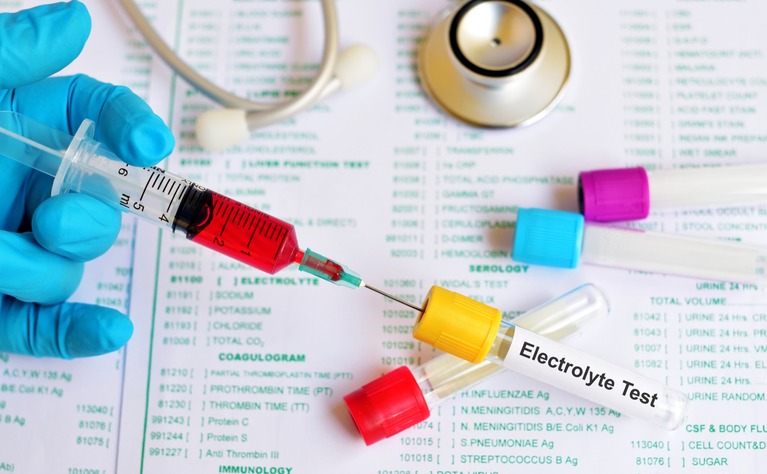
Electrolytes are important for our bodily functions. They help regulate the heart and neurological function, maintain fluid and acid-based balance, oxygen delivery and much more.
Electrolyte imbalances happen when certain minerals the body needs to function become imbalanced. These minerals include:
Electrolytes are found in your blood, body fluids and urine. People with inflammatory bowel disease (IBD) can be prone to electrolyte imbalances.
The symptoms of electrolyte imbalance vary depending on which mineral you are deficient in. However, many of the mineral imbalances cause similar symptoms.
These include:
Some of the common symptoms which people with IBD experience can lead to loss of electrolytes. These include:
These symptoms can also lead to dehydration.
Other causes of electrolyte imbalances include:
Electrolyte imbalance can be diagnosed through urine and blood test samples. Your doctor will probably also take into account your symptoms.
Some companies offer private at home testing - such as this one* which offers both blood and urine electrolyte testing (based in the UK).
It is important to replace the missing electrolytes so that you become rebalanced. How this is done will depend on the severity of the imbalance. If you have a minor imbalance then dietary changes may be possible or drinking rehydration solutions is another option. Treatments for more severe cases include fluid replacement intravenously.
People often self-treat dehydration and electrolyte imbalances using hydration tablets - such as these and these.
If you are suffering from severe vomiting or diarrhoea it is important that you replace the fluids you are losing. You can help to do this by drinking an electrolyte solution or a rehydration solution (such as the ones suggested above).
You may also choose to drink electrolyte solutions if you are sweating from exercising, are taking corticosteroids, have a restricted diet or are experiencing a flare of your IBD.
You can buy products which help to replace lost electrolytes*.
*Please note this is an affiliate link which means if you buy from the company we may receive a commission. You will pay the same price as you normally would and any money earned will be used to support IBDrelief's work.